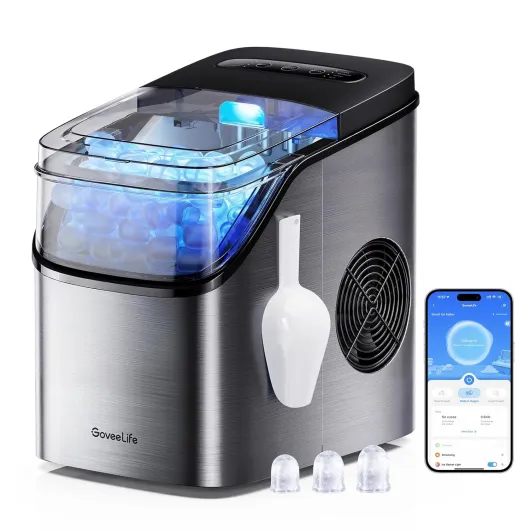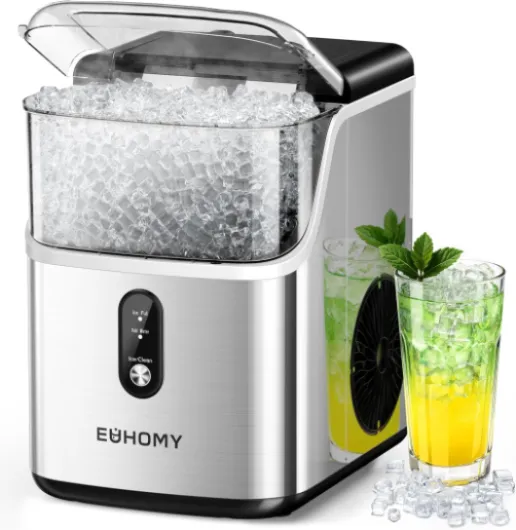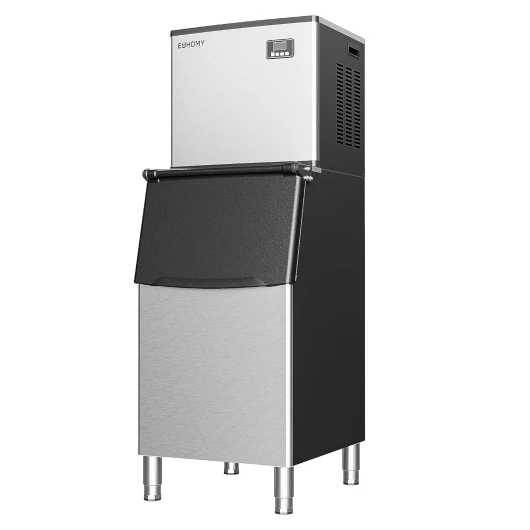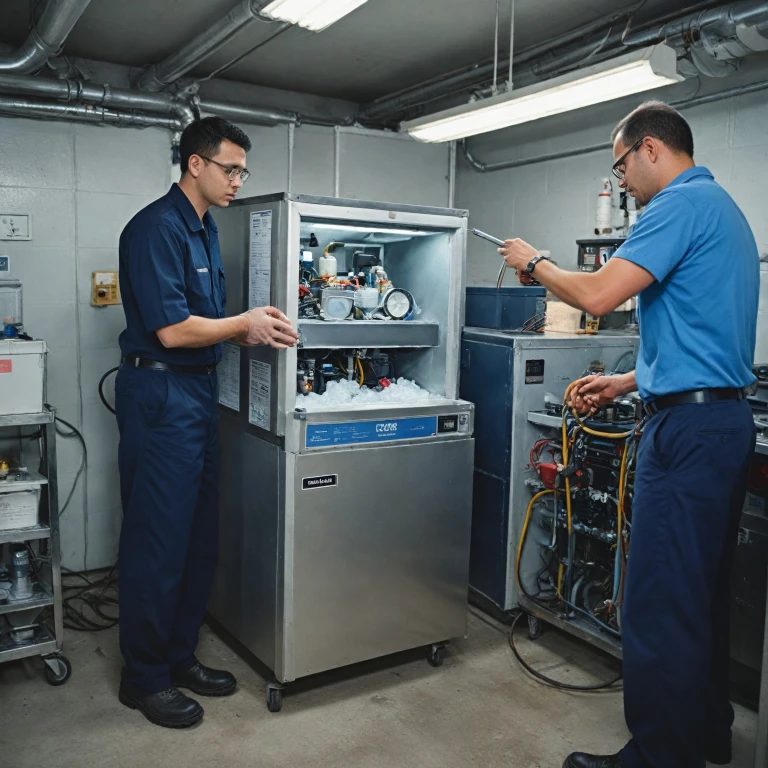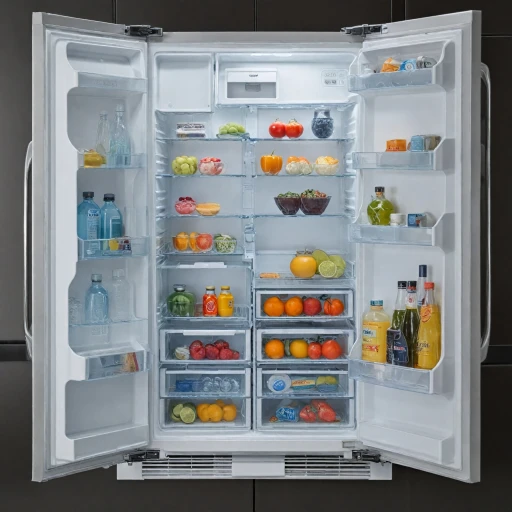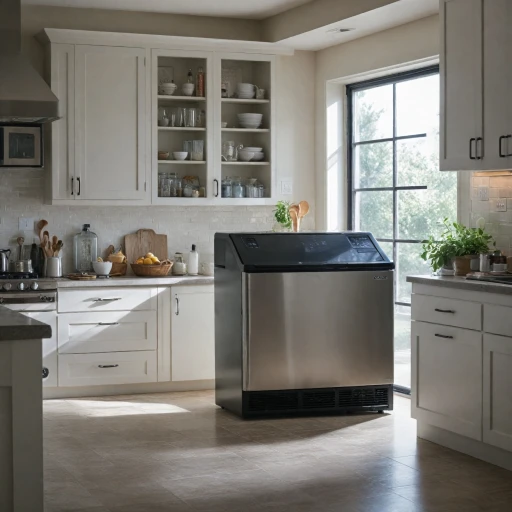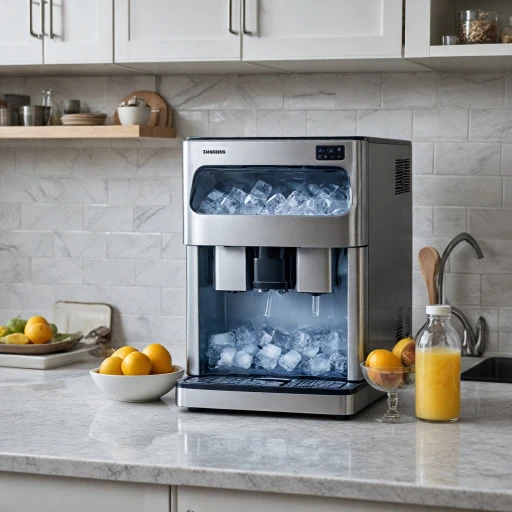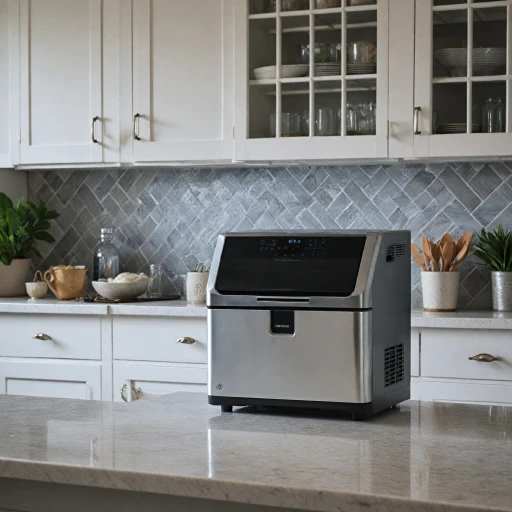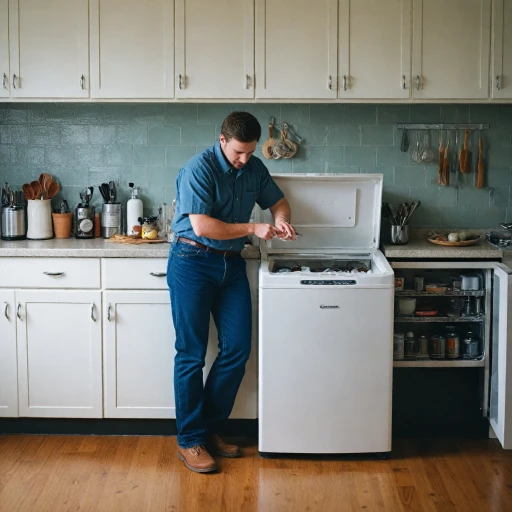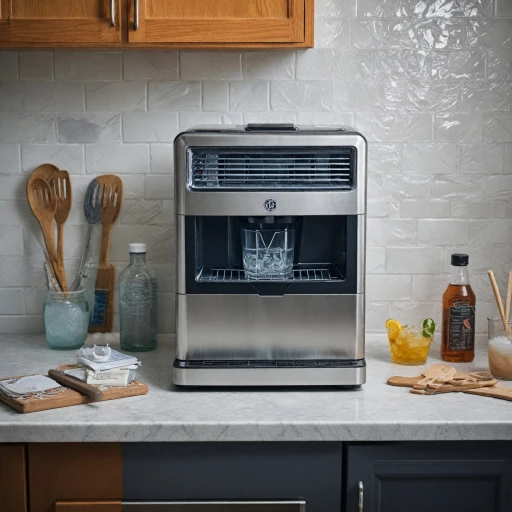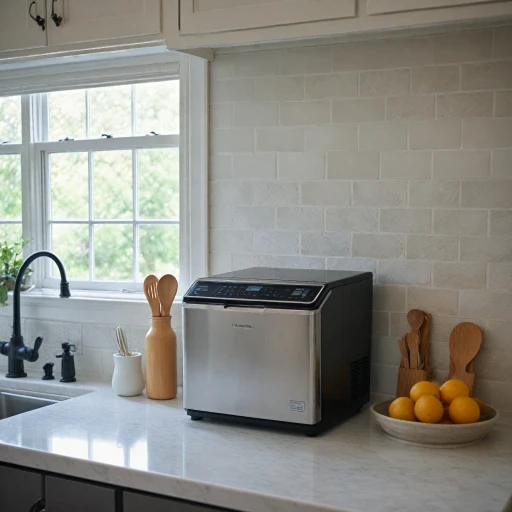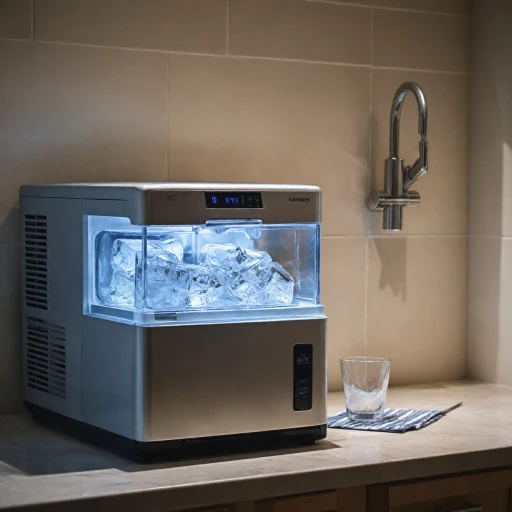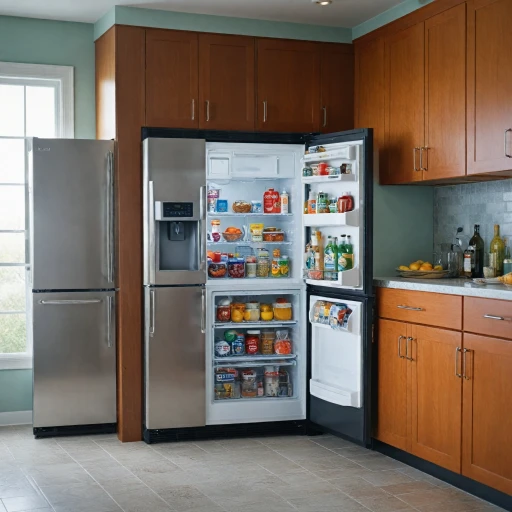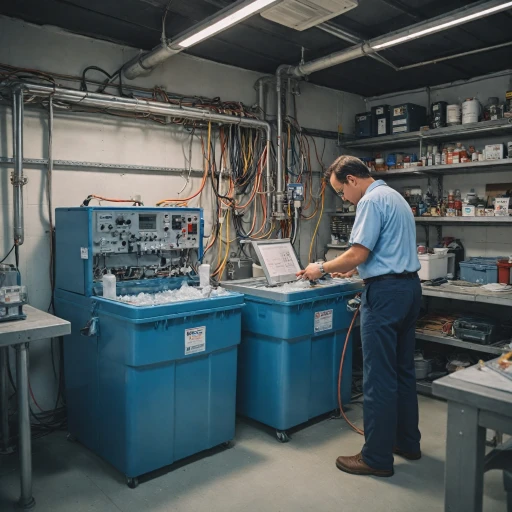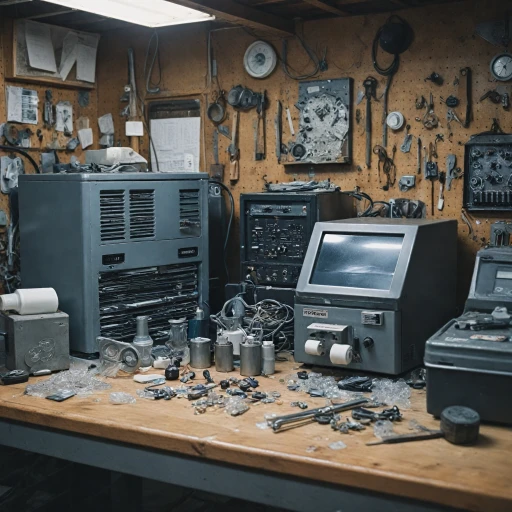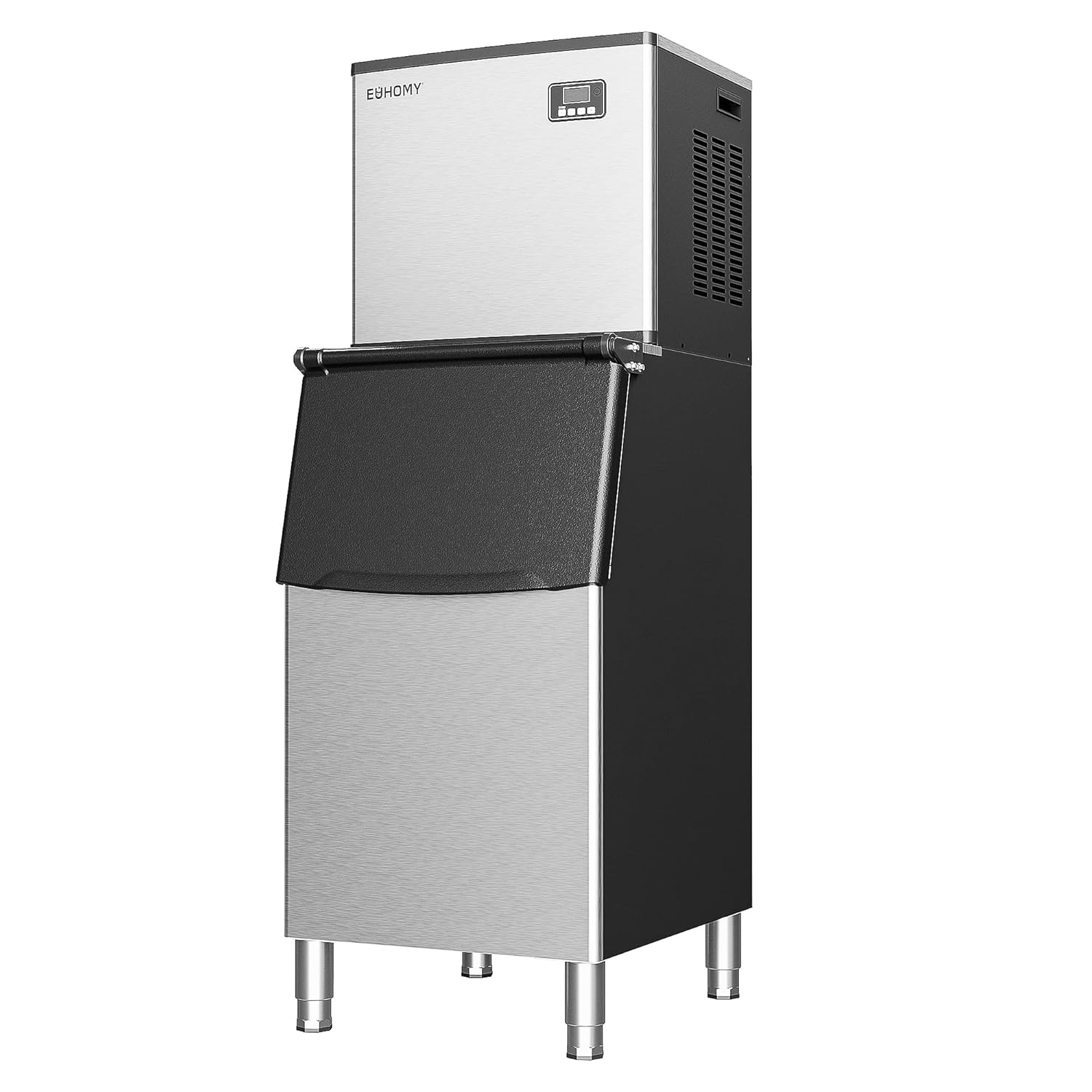
Understanding Common Ice Machine Issues
Identifying Frequent Ice Maker Problems
When it comes to ensuring smooth operations, especially in a foodservice setting, understanding the common issues that plague ice machines is crucial. Proper comprehension of these problems aids in efficient machine repair and maintenance.- Inadequate Ice Production: One prevalent issue is when commercial ice makers fail to produce sufficient ice. This can be caused by a faulty water inlet, poor water flow due to a clogged water filter, or a malfunction in the refrigeration system.
- Irregular Ice Shapes: Sometimes, ice cubes may come out malformed or smaller than expected. This often points to issues with the ice bin or a disrupted air flow, which may stem from neglected appliance maintenance.
- Water Leaks and Drips: Another common problem includes water pooling around the machine, often a sign of leaks or blockages. These can swiftly escalate into larger repairs if an effective service strategy isn't applied.
- Non-Functional Ice Makers: Instances of ice machines ceasing operation altogether aren't uncommon. Here, professional repair services might be necessary to address underlying mechanical failures lurked in the equipment or air-related problems.
Essential Tools for Ice Machine Repair
Must-Have Tools for Efficient Ice Machine Repairs
When it comes to maintaining and repairing ice machines, having the right tools is crucial. Whether you're dealing with a commercial ice maker or a simple home appliance, the right equipment can make all the difference in ensuring a fast and effective repair process. Here’s a list of essential tools that every ice machine technician should have on hand:
- Multimeter: This tool is indispensable for diagnosing electrical issues in your ice maker. It helps in checking the voltage and continuity, ensuring that your machine's electrical components are functioning properly.
- Refrigeration Gauges: These are crucial for checking the refrigeration system's pressure levels. Proper refrigeration is key to maintaining optimal ice production and preventing costly repairs.
- Water Filter Wrench: Regular maintenance of the water filter is necessary to keep your ice machine running smoothly. A filter wrench makes it easy to replace the water filter, ensuring clean water ice production.
- Thermometer: A reliable thermometer helps in monitoring the temperature inside the ice bin and the machine itself, ensuring that your ice cubes are forming correctly.
- Cleaning Brushes: Keeping your ice maker clean is essential for its longevity. Brushes of various sizes can help you reach tight spaces and maintain hygiene standards.
- Socket Set: A comprehensive socket set is useful for dismantling parts of the ice machine for deeper maintenance or repair.
Having these tools at your disposal will not only make the repair process more efficient but also help in preventive maintenance, reducing the need for frequent repair services. For more detailed troubleshooting steps, you might want to check out this guide on troubleshooting and solutions for common ice machine issues.
Step-by-Step Guide to Troubleshooting
Identifying and Resolving Ice Maker Problems
Troubleshooting your ice maker requires a systematic approach to ensure effective results. Whether your appliance is part of a commercial kitchen or a home setup, understanding its components is crucial. Ice machines often face issues due to water supply, refrigeration, or the ice-making cycle itself. Here’s how you can tackle these challenges to keep your ice production running smoothly.
- Assess the Water Inlet: Water supply issues are common in ice makers. Ensure the water inlet is functional and there's no blockage or leakage. A consistent water flow is essential for rapid ice production.
- Evaluate the Refrigeration Unit: The refrigeration system plays a critical role in maintaining the right temperature for ice making. Check for any faults in the refrigeration cycle that could prevent proper freezing of water into ice cubes.
- Inspect the Ice Bin: Verify that the ice bin isn’t overfilled or blocked, which could hinder the ice release mechanism. Keeping the ice bin clear ensures uninterrupted ice dispensing.
- Check the Water Filter: Routine examination of the water filter is part of preventive maintenance. It’s important to replace or clean the filter as recommended by the manufacturer to avoid impurities in the water ice.
- Examine Air Flow: Proper ventilation is essential for ice makers. Inspect the appliance for proper air circulation and clear away any obstructions that could impede airflow.
Once these steps are completed, you should have a clearer insight into what might be causing your ice machine issues. This foundational knowledge allows for more precise repairs and often reduces the need for professional service. However, should problems persist, contacting a professional repair service is advised. Efficient repairs can prevent larger issues down the line and ensure that your ice appliance remains in optimal working condition. For more insights on maintaining your ice maker, check out our detailed guide on managing dry ice in freezers.
Preventive Maintenance Tips
Regular Cleaning and Inspection
To keep your ice maker in top condition, regular cleaning and inspection are crucial. This helps prevent common issues like water inlet blockages and ice production inefficiencies. Make sure to clean the ice bin and water filter regularly to ensure the machine operates smoothly. Regular inspections can help identify potential problems before they escalate, saving you from costly repairs.
Check the Water Supply
Ensuring a consistent water supply is vital for efficient ice making. Check the water inlet for any blockages or leaks. A steady flow of water is essential for the ice maker to produce ice cubes efficiently. If you notice any irregularities, it might be time to contact a professional for machine repair services.
Monitor Refrigeration and Air Flow
Proper refrigeration and air flow are key to maintaining your ice machine's performance. Ensure that the refrigeration system is functioning correctly and that there is adequate ventilation around the machine. This is especially important for commercial ice makers used in foodservice settings, where consistent ice production is critical.
Schedule Regular Maintenance
Regular maintenance is a proactive way to extend the lifespan of your ice maker. Consider setting up a maintenance schedule with a reliable repair service. This can include checking the machine's components, cleaning the equipment, and ensuring that the ice maker is operating efficiently. Regular maintenance can prevent unexpected breakdowns and keep your ice machines running smoothly.
Stay Informed and Prepared
Being informed about your ice machine's needs and potential issues can help you act quickly when problems arise. Keep the contact information of a trusted repair service handy, so you can get fast repairs when necessary. Staying prepared ensures that your ice maker continues to serve your needs without interruption.
When to Call a Professional
Recognizing the Need for Professional Intervention
In the realm of troubleshooting ice makers and undertaking machine repair, the natural inclination might be to handle various issues independently. However, there are certain situations where the insight of a professional repair service becomes indispensable to ensure the longevity and performance of your ice machine.- Complex Electrical Issues: If your ice maker is experiencing electrical faults or intermittent power problems, it's best to seek a certified technician. Handling electrical components without adequate expertise can pose safety risks and may further harm the equipment.
- Refrigeration Problems: Problems with the refrigeration system, such as inefficient cooling or icy build-up, often merit professional attention. Service technicians can pinpoint issues with the compressor, coolant levels, or air flow, guaranteeing efficient commercial ice production.
- Water Supply Concerns: Persistent water leaks or issues with the water inlet could be indicative of deeper plumbing problems. Professional repair services can diagnose and remedy these challenges to keep your restaurant ice safely flowing.
- Major Mechanical Failures: Significant mechanical failures, affecting the ice bins or freezing components within your ice machines, require specialized knowledge for effective repair. Not addressing these issues can lead to larger equipment damage.
- Scheduled Maintenance Services: While preventive maintenance and cleaning are vital, periodic comprehensive maintenance from a professional can catch issues early and ensure all components are operating optimally. This service is crucial especially for commercial ice machines that undergo heavy usage.
Cost-Effective Repair Solutions
Affordable Repairs for Your Ice Maker
If you've already tried troubleshooting and performed preventive maintenance without success, it might be time to consider affordable repair solutions for your ice maker. Here's how to approach cost-effective repairs for your ice machines.- Identify and Isolate the Problem: Start by understanding the specific issue with your machine. Whether it's related to the water inlet, ice production inconsistencies, or a malfunctioning refrigeration unit, correctly pinpointing the problem can help reduce costs by targeting the repair efforts.
- Utilize Your Tools Efficiently: Make full use of the essential tools for ice machine repair as discussed in the previous sections. This includes leveraging tools like multimeters and ice bin thermometers to assess and confirm issues before proceeding with any purchases or professional repairs.
- DIY Repair Solutions: If the issue is minor, such as a blocked air filter or a kinked water hose, addressing these on your own can save you significant time and money. Understand your machine’s manual to guide you through simple repairs and replacements.
- Routine Check-ups: Consistent preventive maintenance can help identify potential issues early. This might involve inspecting the water filter, maintaining the cleanliness of the appliance, and ensuring regular air flow to prevent further degradation and expensive repairs.
- When Professional Help is Needed: For complex issues involving the refrigeration system or major breakdowns, contacting a professional ice machine repair service may be necessary. Sometimes, the expertise provided by commercial ice machine professionals can prevent more extensive damage, saving you cost in the long term.
- Balance Cost and Quality: Ensure that the repair services you choose offer a balance between cost and quality. Opt for service providers known for fast, efficient, and reliable repairs that help keep your machines operational with minimal downtime.
- Consider Long-Term Investments: Occasionally, repairs may point to the need for replacing parts or even the machine itself. Consider long-term investments in quality parts or newer models with better efficiency ratings.
-logo-retina.png)
